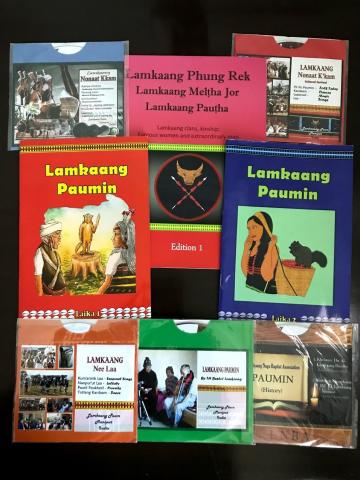Challenges Facing Indigenous Languages
Reasons for concern:
- Today about 7,000 languages are spoken worldwide, but scientists estimate that about half will no longer be spoken at the end of the century
- Indigenous people speak the majority of the world's 7,000 languages
What are benefits of indigenous languages?
- Languages play a central role in the identity of indigenous communities
- Each language provides a unique way of understanding the world
- Each language acts as a repository of cultural knowledge, practices, and histories
Why are languages being lost?
- In the US, the government adopted policies to eradicate indigenous languages, like sending indigenous children to boarding schools where they were only allowed to speak English
- Worldwide, forces of colonization, globalization and westernization have encouraged people to speak English or other world languages
 What is being done to help?
What is being done to help?
- Indigenous communities around the world are taking steps to revitalize their languages
- Initiatives include providing language training to youth, developing online resources, and encouraging community members to place a high value on their language
- Linguists and anthropologists are actively supporting these efforts
- Picture on right shows textbooks and DVDs prepared by Lamkaang community in Northeast India
